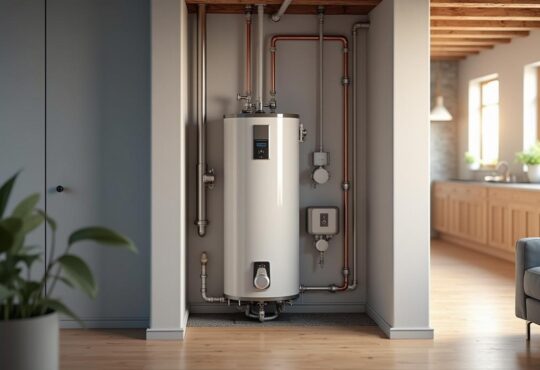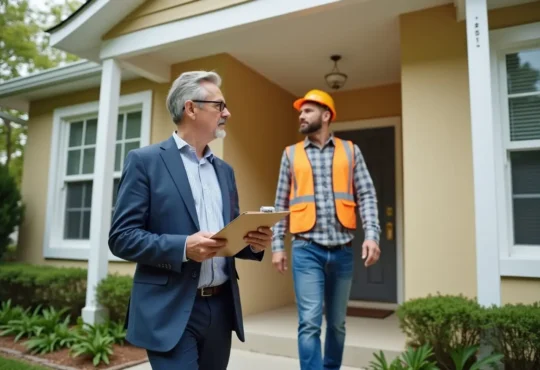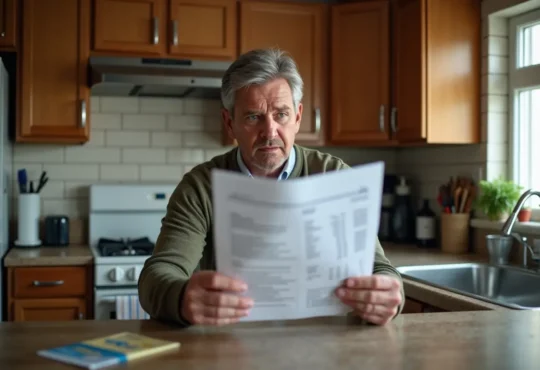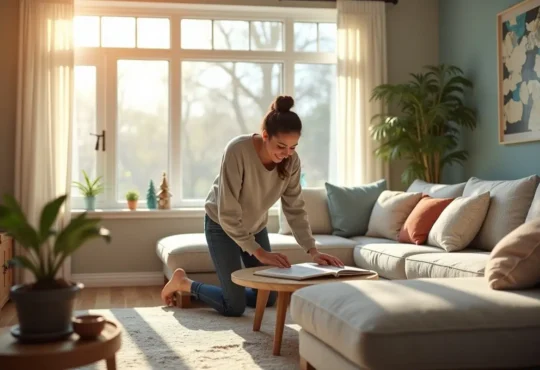
How to Get Plumbing License in GA
Many seeking independence in Georgia’s construction sector prioritize obtaining a plumbing license. There’s something about seeing a job come together and knowing your expertise is truly valued. Maybe you’ve spent years honing your craft under the watchful eye of a seasoned professional, or perhaps you’re driving toward a fresh start in the trades. The process of securing your credentials can feel overwhelming at first. Yet, there’s a sense of accomplishment that comes with following the right steps and achieving your official license.
For many aspiring plumbers, the real challenge is figuring out the path to legal work and stable career growth. You might be aware of Georgia plumber requirements and wonder if your background measures up. The path typically involves formal education, on-the-job experience, and a state-administered exam. As daunting as it sounds, the journey can be broken down into sections that are easier to manage. With some planning and a clear picture of what’s involved, you’ll be on your way to a fulfilling trade that benefits both you and your community.
Contents
Why a License Matters in Georgia
Securing a license in Georgia is more than just meeting red tape. It reflects your level of commitment and professional expertise. Licensed plumbers carry more weight in the marketplace, which translates to higher pay and a reliable reputation.
Clients look for specialists who follow state codes and guidelines. When you hold the official credentials, you demonstrate that you have passed the Georgia plumbing exam and met rigorous standards. This further opens the door to operating your own business, taking on larger contracts, or working with established plumbing companies.
Having a valid license also protects you against potential legal issues. Doing plumbing work without the proper credential can bring hefty fines and penalties. Georgia’s state agencies take safety seriously, so meeting the requirements helps you stay on the right side of regulations. That sense of security alone is worth the time invested in the licensing steps.
Key Differences Between a Journeyman and a Master
In Georgia, you’ll often come across two main levels: journeyman plumber and master plumber. A journeyman typically has enough skills to handle most residential or simple commercial tasks. If you want to work under someone else’s license or do small-scale work, this could be the right fit.
Once you move toward master status, you’ll find broader authority and bigger responsibilities. Master plumbers oversee major projects and can own and operate a business without supervision. That also translates to higher earning potential. Still, it does require more verified work hours and a separate exam to move up to this tier.
Meeting the Experience Requirements
Every aspiring plumber needs core experience before tackling the state test. Georgia plumber requirements revolve around measurable work hours. If your dream is to become a journeyman, you’ll usually need several years of on-site training. The same is true for those moving on to the master level, only they’ll have to show more practice in the field.
Employers or apprenticeship programs can confirm your hours through official documentation. You want to keep busy with projects that match the real-life tasks you’ll face later. This includes installing fixtures, reading blueprints, and repairing pipelines. Hours spent solely on tasks unrelated to plumbing won’t help you qualify, so be sure your supervisor tracks the right responsibilities.
You don’t need to be intimidated by the likely time commitment. Much of the experience develops naturally if you’re already working under a licensed professional. If you’re just getting started, explore positions where you can learn hands-on. It might feel slow at first, but you’ll gain skills and confidence along the way.
Required Apprenticeship and Education
An apprenticeship is one of the most direct routes for many people aiming to meet the experience requirement. Apprenticeships often combine classroom instruction with real-world job assignments. This route doesn’t just check off boxes for the licensing board. It ensures you become comfortable replacing pipes, troubleshooting leaks, and interpreting local codes.
Structured instruction also prepares you for the Georgia plumbing licensing board exam. Expect to study building codes, safety guidelines, and advanced plumbing principles. Formal education isn’t just about theory. It helps you address potential issues with clarity and lifts your professionalism, which can improve your credibility with clients and future employers.
Registering for the Georgia Plumbing Exam
Once you’ve met the work-hour requirement, you can apply for the state test. Most candidates pre-qualify through the Georgia State Construction Industry Licensing Board. The paperwork asks for proof of your on-the-job hours and might request details about your education. Double-check that everything is completed accurately, or you risk delaying your test date.
Exam fees vary depending on the classification you want journeyman or master. Expect to pay the required fee when submitting your application. After the board reviews your credentials, they’ll let you know if you can schedule the exam. Be prepared to wait a few weeks for a response, but don’t let that time go to waste. Keep studying and honing your craft so you’re fully ready once the test day arrives.
Many people find it helpful to gather resources from others who have already taken the test. Even short study sessions reviewing practice questions or official manuals can give you a real edge. Remember, the goal is to prove you have the knowledge to handle various plumbing scenarios safely and competently. Focus on key topics like venting, drainage, pipe sizing, and local mechanical codes.
What to Expect on Test Day
State exams often follow a multiple-choice format with a set time limit. Besides answering theoretical questions, you might see practical scenarios that assess your problem-solving skills. Don’t be surprised if the test also covers federal or local regulations. That’s because plumbing tasks tie directly to public safety and health.
Try not to cram too much the night before. Instead, review your notes, rest well, and arrive early. You’ll need to show a valid ID before you enter the testing room. Some testing centers impose strict rules: no phones, no calculators beyond a basic model, and no loose paper. Follow all guidelines to avoid disqualification.
The Application Process with the Georgia State Licensing Board
After passing, you’ll still need to submit your exam scores and additional paperwork to get your professional license. This part often involves a background check, proof of insurance, and payment of certain fees. Expect forms that request personal data, including your residential address and references from past supervisors.
It’s wise to keep a record of all communications. If the board has questions, they may request more documentation, which can draw out the process. Each required piece of paperwork matters, so don’t rush. You’ll receive your license once everything checks out, giving you the official green light to work legally in the state.
The Georgia plumbing licensing board has clear guidelines for anyone in the application pipeline. If something looks confusing, try reading up on the official state website or consult a local licensing specialist. These resources can offer clarity and help you avoid common mistakes. Completing the application thoroughly can mean the difference between a quick approval and a drawn-out wait.
Potential Timeline and Next Steps
Timelines vary widely, especially if you need extra time to gather documents or retake your exam. Many people manage to finish everything within a few months. But if your application materials have gaps, you might face further reviews.
While waiting for final approval, it’s good to gather tools and plan your next move. If you passed the exam for a journeyman license, consider applying for positions that match that level. For those aiming to run a company, start drafting a business plan or exploring resources from Georgia’s professional licensing agencies. A strong plan keeps you stable once your license arrives.
Securing continuing education is another worthy move. Certain courses help you stay fresh on changes to plumbing codes and advanced methods. By staying current, you’ll also stand a better chance of renewing your license without hiccups later on. Renewal requirements exist to ensure plumbers keep pace with updated health and safety rules, which ultimately benefits customers and the public at large.
Above all, remember that the licensing process is a sign of the commitment you’ll bring to your clients. Once you hold your license, you join a community of skilled professionals who help keep homes and businesses running smoothly. Over time, your credentials will build trust with clients, and that can translate into rewarding projects.
Once your license is in your hands, you can embrace the freedom to take on fresh opportunities. Perhaps you’ll focus on remodeling projects or commercial installations. Maybe you’ll specialize in green plumbing solutions for modern, eco-conscious clients. With a valid credential behind you, the future is yours to shape in Georgia’s vibrant plumbing industry.





 Hi I'm Joe.
Hi I'm Joe. 